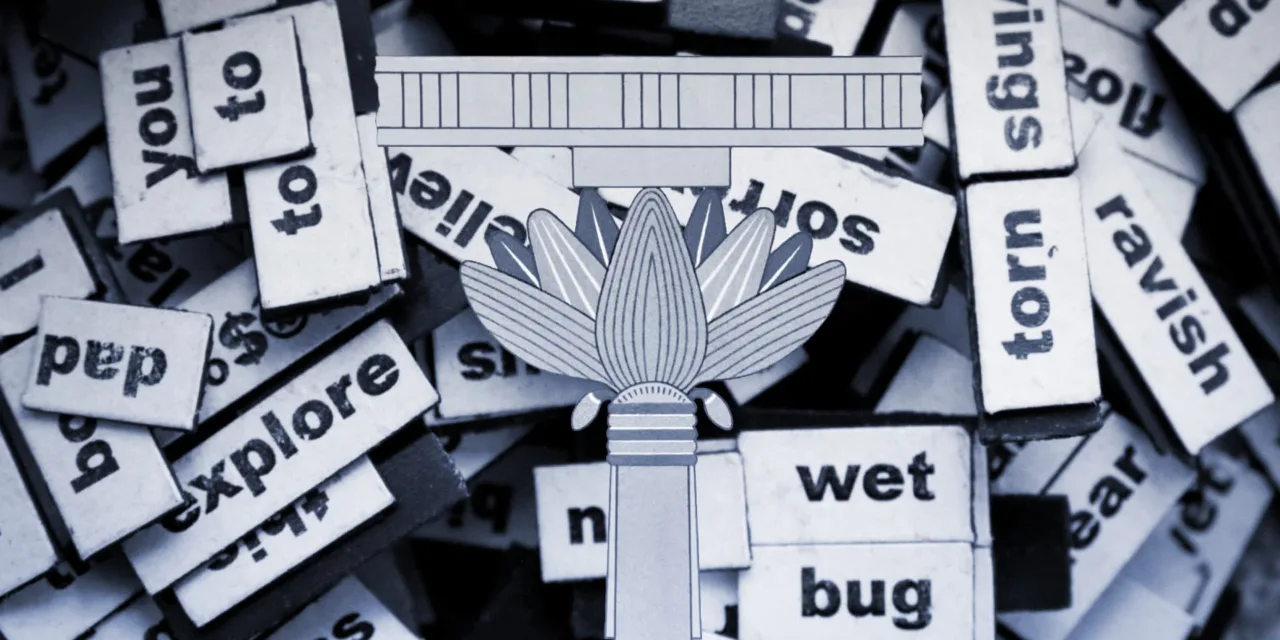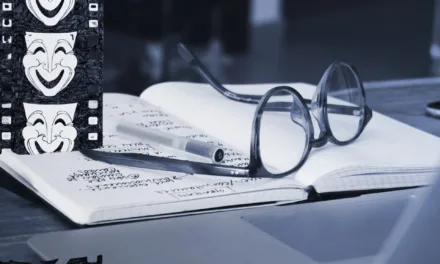
5 Crutch Words to Eliminate From Your Writing

Have you ever read back something you’ve written and felt like it’s not as strong as you’d like? We all have crutch words we overuse that both bulk up the word count and weaken the prose. While crutch words can have a place in your writing, especially for scene-setting or character development, generally, an over-reliance on these words can make your writing seem repetitive or lacking in depth.
What is a crutch word?
A crutch word is a word a writer uses unconsciously. They usually don’t need them, and they don’t add to the story. If someone is speaking, you’ll recognise a crutch word as a pause, or if the speaker uses “um” or “ah” a lot. It essentially gives the speaker time to think before they move on to the next idea.
For writers, crutch words operate in much the same way, but instead of a pause, it’s a filler word we unconsciously use because we haven’t thought the sentence through enough. They’re words that are easy. They flow naturally into the space that could easily be occupied by a slight reworking of a sentence, or a different word choice.
How to eliminate crutch words
Now that you know what crutch words are, the question is, how do you eliminate them? It’s not always easy to pick up on your own writing quirks, so it might take a bit of diligence to find out what yours are.
The next time you sit down to read over your manuscript or story, look carefully for repeated words or phrases. Highlight them so they’re easy to find later. Look at both an old and a new piece of writing and compare the two. Are there phrases or words you use a lot that are common to both? If yes, then you’ve found your crutch words!
You’ll probably find you use common ones, but there may be words that only you use a lot. I, for instance, tend to use common Australian slang as crutch words in my first drafts that I then need to go through and delete during my first edit. An example is that I use “all up” if I’m writing about something in totality, which isn’t appropriate for a wider audience unless it’s specific to a character’s voice.
Once you’ve identified your crutch words, they’re easy to edit out later. But don’t be afraid if you find them in your first draft. Eliminating those words is exactly what revision is for!

Common Crutch Words
Just
‘Just’ is one of the most common crutch words. It’s meant to denote simplicity, but can be completely removed with no loss of meaning in most cases. Using the word occasionally can emphasise the idea of simplicity, but overuse makes it redundant. Often, removing the word ‘just’ can make a sentence read more impactfully.
The exception to this is when writing dialogue. Just as writers use crutch words unconsciously, so do characters. A carefully placed ‘just’ at the beginning of a cry of exasperation, for instance, can actually emphasise their mental distress and add to the overall picture.
The trick is to use ‘just’ sparingly and consciously.
Quite
‘Quite’ is a qualifier with no real strength behind it. It’s an ambiguous adverb, meant to suggest the possibility of more than one interpretation. The problem is that most people use it for emphasis, resulting in prose that comes off as a little wishy-washy.
A lot has been said about avoiding adverbs, but understanding how specific ones are used can help determine why they should be avoided and when they can be used to strengthen your writing.
If a character is genuinely uncertain about something, then ‘quite’ can be a valid choice, but you still need to ask yourself whether another word might be stronger in that context. Instead of saying, “she wasn’t quite sure,” you could instead reframe that idea with more descriptive words like ‘trepidation,’ or ‘uncertainty.’
If there is a binary difference in what is being observed, then ‘quite’ can be cut out entirely. For instance, if a character is hiding something in their hand, then saying someone “couldn’t quite see” sounds noncommittal and doesn’t accentuate the scene as much as a definitive statement like “they couldn’t see it” would.
Really
You’ve got to feel a little sorry for the word ‘really’ as the problem is, in essence, that it’s completely unremarkable. It’s meant to show that something is more or less of something than average, but is such a flaccid description that you may as well not have qualified it at all.
There are very few examples in prose where the word ‘really’ would fit better than a more emphatic word. Saying something is “really good” isn’t punchy or interesting—it’s weak. The best thing to do is to commit to one end of the spectrum or the other. Make it ‘breathtaking’ or ‘fabulous.’ Make it ‘disappointing’ or ‘lacklustre.’ Whatever side you choose, just make sure your words commit.
Of course, like most writing rules, there are exceptions. ‘Really’ works well if your character is voicing sarcasm. “Yeah, it’s really great,” carries a tonal meaning that the word communicates well. You might also have characters who use it as slang. For instance, in Australia, we often use “really great” or “pretty good” to mean amazing, or excellent, so it works if you’re trying to show a character’s cultural background through their speech.

Literally
‘Literally’ is one of the most famously derided crutch words, particularly because it’s often used incorrectly. It’s entered the English language as a statement of hyperbole and emphasis, whereas its true meaning is incredibly definitive.
The problem is that ‘literally’ is worn out. Because it’s so often misused, people love to argue about it (“do you mean literally, or did you actually mean figuratively?” usually said with a know-it-all smirk), and because they love to argue about it, people are sick of hearing and reading it.
Most of the time when a writer uses literally, it can be replaced with something else or left out with absolutely no change to the meaning of a sentence. And while sometimes, ‘literally’ could be the exact word you mean, it’s the one word I’d say you should avoid as much as possible. It comes with so much baggage that it’s not worth the trouble. Literally.
A lot
‘A lot’ is often both misused and misspelt. (If you haven’t seen Hyperbole and a Half’s amazing webcomic about ‘a lot,’ then you should definitely check it out). It’s one of those words that sounds like emphasis but is so overused that it’s lost its meaning.
‘A lot’ is meant to show an abundance of something, but due to its overuse, it comes across as reductive. It’s also often used when people mean ‘much’ or ‘many’. This can change the tone of your writing and come across as poorly constructed or lazy. Especially since ‘a lot’ is functionally meaningless.
Using ‘a lot’ gives no indication of size or scope. It doesn’t carry the same weight as describing something as ‘grand,’ ‘massive,’ ‘myriad,’ or ‘surplus.’ It can be fine to use if you’re keeping a colloquial tone, or you want to show that something is reductive, but ‘a lot’ is, without a doubt, one of the most important crutch words to avoid in the bulk of your prose.
By learning what crutch words you use and knowing how to eliminate them, you’ll take your revising to the next level. Here are some other common crutch words you might want to look out for: super, awesome, excellent, basically, actually, felt, look, appear to, wonder, somehow, probably.
Have you found crutch words that you use a lot in your prose? Have any tips for how to eliminate them? Let us know!



























